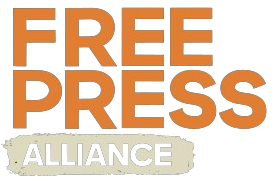Journalism is often described as a calling rather than just a profession. But behind the deadlines, breaking stories, and constant exposure to crises, many journalists quietly struggle with mental health challenges. From burnout caused by heavy workloads to secondary trauma from covering violence, war, or natural disasters, the toll on well-being is real, and too often overlooked.
This article outlines practical strategies, resources, and support systems that can help journalists cope with stress, recover from trauma, and sustain their careers without sacrificing their mental health.
Why mental health matters in journalism
Journalism is a public service, but it often comes at a personal cost. Reporters are exposed to difficult realities, sometimes without the support or recovery time that other high-risk professions provide. Acknowledging the importance of mental health is the first step toward breaking stigma and protecting both journalists and the quality of their reporting.
Common risks include:
- Exposure to trauma: covering conflict, natural disasters, or crime can lead to vicarious trauma.
- High-pressure environments: deadlines, job insecurity, and the demand to “always be on” create chronic stress.
- Isolation: freelancers and local reporters often lack institutional support.
- Stigma: Within journalism, acknowledging stress or trauma is sometimes viewed as weakness.
Recognizing the signs of burnout and trauma
Stress and trauma don’t always show up immediately. They can build quietly until they affect work, health, and personal life. Journalists should learn to identify early warning signs in themselves and colleagues, so they can act before problems escalate.
Signs may include:
- Emotional exhaustion or detachment from stories.
- Difficulty sleeping, hypervigilance, or intrusive thoughts.
- Cynicism, irritability, or loss of motivation.
- Physical symptoms such as headaches or fatigue.
Practical strategies for journalists
Protecting mental health requires more than willpower, it involves developing daily habits and intentional strategies. By adopting coping mechanisms, reporters can create resilience that sustains them through difficult assignments.
- Build healthy boundaries
Constant connectivity can blur the line between work and rest. Setting boundaries helps restore balance.
- Limit exposure to distressing images or recordings when possible.
- Set clear “off hours” to disconnect from news cycles.
- Develop coping techniques
Practical tools help manage stress in the moment and reduce its long-term impact.
- Practice grounding exercises and mindfulness.
- Keep a journal to process experiences outside of reporting.
- Strengthen peer support
Journalists understand each other’s challenges better than anyone else. Having a supportive network makes recovery easier.
- Create small peer circles where journalists can share experiences confidentially.
- Reach out to trusted colleagues rather than isolating.
- Seek professional help
Sometimes, external support is the most effective. Therapy can provide tools that go beyond self-care.
- Consider therapy with professionals who understand trauma.
- Explore counseling resources offered by press freedom organizations.
- Invest in self-care
Personal health is the foundation of professional resilience. Taking care of the body and mind improves the ability to face challenges.
- Prioritize physical health with sleep, nutrition, and exercise.
- Engage in non-work activities that bring joy and creativity.
Organizational responsibility
While individual strategies matter, newsrooms and media organizations also play a crucial role in preventing burnout and trauma. By creating safer work environments, they protect both their staff and the integrity of journalism.
- Providing trauma training and access to mental health services.
- Normalizing conversations about well-being in editorial meetings.
- Avoid punishing journalists who request time off or adjustments after traumatic assignments.
Useful resources
Journalists don’t have to navigate mental health challenges alone. Several organizations specialize in offering support, training, and practical tools to help media workers cope.
- Dart Center for Journalism & Trauma: guides and training for reporting on violence and trauma.
- International Women’s Media Foundation (IWMF): mental health resources for women journalists.
- Committee to Protect Journalists (CPJ): safety and well-being guides.
- Rory Peck Trust: support for freelancers, including trauma counseling.
Conclusion
Protecting mental health is not a luxury, it is essential for good journalism. By recognizing the challenges and building strategies to cope, journalists can continue their work with resilience and humanity. When journalists care for themselves, they are also protecting the integrity of their reporting and the communities they serve.
Sources
Dart Center for Journalism and Trauma. (n.d.). Style guide for trauma-informed journalism. Columbia University Graduate School of Journalism. https://magazinetraining.com/dart-style-guide-for-trauma-informed-journalism/
Global Center for Journalism & Trauma. (n.d.). Resources. Global Center for Journalism & Trauma. https://gcjt.org/resources
Journalist Trauma Support Network. (n.d.). Our program. Journalist Trauma Support Network. https://www.jtsn.org/program
Journalist Trauma Support Network. (n.d.). Resources for journalists seeking therapy. Journalist Trauma Support Network. https://www.jtsn.org/resources-for-journalists
Journalist Trauma Support Network. (n.d.). Training. Journalist Trauma Support Network. https://www.jtsn.org/training
Journalists’ Resource. (2021, August 16). Trauma-informed journalism: What it is and why it’s important + tips for practicing it. Shorenstein Center on Media, Politics and Public Policy, Harvard Kennedy School. https://journalistsresource.org/home/trauma-informed-journalism-explainer/
Rory Peck Trust. (n.d.). Therapy fund for freelance journalists. Rory Peck Trust. https://rorypecktrust.org/get-help/therapy/therapy-fund/
Trauma Journalism. (2023). Trauma-informed journalism: What it is, why it’s important, and tips for practicing it. Trauma Journalism Project. https://traumajournalism.org/trauma-informed-journalism-what-it-is-why-its-important-and-tips-for-practicing-it/

